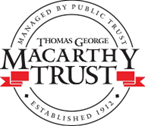
Child development and slow release fertilizer
Firstly, what do hydrangeas have in common with children? Well, as it turns out, not lot. Secondly, what does Parentline's upcoming 'X Factor Parenting' presentation have in common with hydrangeas? Once again, nothing that jumps out at you right? But if, metaphorically speaking, we confer that how we tend to and nurture the needs of our growing garden has similarities to how we might tend to and nurture the needs of our growing children then we might have found the connection. For example, if we wanted to optimise the growth of our favourite hydrangeas we might position them in a well-drained soil, in a semi-shaded area of the garden. To optimise flowering we might have carefully pruned them back in early spring and added a slow release fertiliser when the growing season kicks in. On the other hand, we if we weren't so focused on our hydrangeas becoming strong, robust plants that reward us with a colourful spray of colour in their prime we might go about planting and simply hope for the best. In this case we might have planted them where drainage is poor or there is not enough shade, we may overlook watering, pruning, or fertilising them, and heaven forbid we may even inadvertently spray them with weed killer! Which doesn't make much sense really and I'll leave you to ponder the response of the hydrangea to that flavour of sustenance! But it's fair to say when we plant our hydrangeas we do so with the hope growing strong, healthy, robust plants that behave in an according fashion. Our chances of success depend greatly on the knowledge and understanding we have about the plants needs to develop to potential in the first place and ideally, armed with this knowledge, we go about the business of ensuring our hydrangeas are nurtured and mentored into well rounded and bushy specimens from their seedling infancy.
Now bear with me non-gardening fanatics - this brings me to my next point - and I can almost hear you saying 'I still don't see the connection here. Precisely! Connections are the flavour of the month here at Parentline Manawatu! Brain connections to be more specific - along with the exciting connections we have been making for parents. On May 4th we are bringing to you Mr Nathan Mikaere-Wallis from Canterbury University who isn't coming to tell us about hydrangeas but does knows a thing or two about connections of the neuro-scientific variety. And here's the metaphoric connection - I emphasised the importance of providing all the needs of the plant we want to grow to its full potential from seedling infancy - well Nathan is coming to talk to us about what latest research is telling us about nurturing and facilitating children's brain development and growth and how this pertains to the practical side of things in our role as parents.
Effectively, latest research largely contradicts ideas that have previously and are still currently popular about how to facilitate children's development and learning. New technologies have provided some clear scientific insights that show how our children are nurtured and responded to from very early on has significant implications for later intellectual and emotional development. This includes how they go on to learn, problem solve, relate to others and manage their own emotions and children's early experiences form the nature of how connections in the brain are hard-wired for later life functioning. Nathan takes information from the neuroscience findings and translates the results into helpful parenting information on childhood development and encourages us to consider what really is important about our parenting roles and indeed the roles of other significant influences in children's lives like education and childcare.
So just as we might utilise the benefits of a slow release fertiliser to ensure a great performing garden of hydrangeas we will hear from Nathan how we can slowly and effectively fertilise our children's developing brains and avoid later difficulties by inadvertently mistaking our parenting fertilisers with parenting weed-killers! Be prepared to be entertained, challenged and enlightened by Nathan's practical lens on the research and learn effective and practical ways of responding to challenging behaviours while maintaining positive and warm relationships with your children.
A parent and foster parent himself, Nathan has worked as an early childhood and primary teacher, child counsellor, and education manager. Nathan's current role is lecturer at Canterbury University's College of Education, School of Human Development and Educational Studies. He is the founding member of the Te Wai Pounamu Brainwave Board, a presenter for Brainwave Trust and a trainer for Child Protection Studies. He also works within his own consultancy called 'X Factor Education'.
Kelly




















